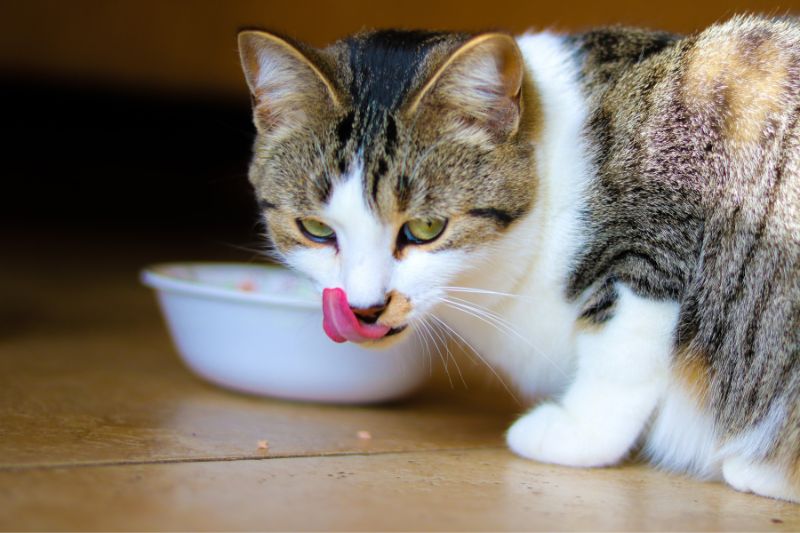No products in the cart.
Is Your Pet Getting All the Necessary Nutrients? Here’s How to Find Out

It’s important for us to make sure our pets are getting all the nutrients they need in order to stay healthy. Unfortunately, it can be difficult to determine if your pet is receiving enough nutrition from its diet. There are many factors that affect how much nutrition a pet needs, and understanding these variables can help you assess whether or not your pet is getting all the necessary nutrients. In this article, we will discuss what signs indicate nutritional deficiencies in pets and how to select food that provides adequate nourishment for them. We’ll also cover some of the common mistakes people make when feeding their animals and provide tips on providing balanced diets for cats and dogs. By following these guidelines, you can ensure that your beloved companion stays healthy and happy!
Select Food that Provides Adequate Nutrition for Your Pet
When selecting food for your pet, it is important to choose food that contains all the necessary nutrients. Look for foods that are labeled as “complete and balanced” and check the nutrition facts label on the back of the packaging. Make sure that the food contains adequate amounts of protein, fat, carbohydrates, vitamins, minerals, and other nutrients your pet will be needing on a regular basis. Now, if you are considering supplementation, when adding ProDog Supplements you should be sure to follow the instructions provided so that you do not harm your pet in any way. On the other hand, if you opt for foods that are labeled as “natural” or “human-grade,” be aware that these foods may not necessarily contain all the necessary nutrients for your pet.
Understand the Variables that Affect Nutritional Requirements
In addition to selecting the right food for your pet, it is also important to understand the variables that affect nutritional needs. Factors such as age, breed, activity level, and health condition can all influence how much nutrition a pet requires. Younger animals, for example, may need more protein than older ones due to their growing bodies. Pet owners should also be aware of food allergies and sensitivities, as these can cause adverse reactions if not taken into consideration. In addition, pets with medical conditions such as diabetes, kidney disease, and cancer may require special diets that provide extra nutrients to help manage their condition.
Notice Signs of Nutritional Deficiencies in Your Pet
- Weight Loss
- Dull Coat and Skin Conditions
- Poor Appetite or Eating Too Much
These three represent some of the most common and visible signs of nutritional deficiencies in pets. If you notice any of these symptoms, it is important to seek veterinary advice as soon as possible. Additionally, because your pet’s nutritional needs will change as it ages, you should monitor these signs regularly and adjust its diet accordingly. Understanding the signs and being able to notice them quickly can help you ensure your pet is getting the nutrition it needs and prevent any health issues from arising.
Avoid Common Feeding Mistakes
For example, many pet owners do not realize that cats and dogs have very different dietary needs and require completely different types of food. Additionally, you should never feed your pet table scraps as these can be unhealthy or even dangerous for them, depending on the ingredients. Lastly, make sure you are not overfeeding your pet as this can lead to obesity and numerous other health problems. By actively avoiding these mistakes which can be very easily done you can ensure your pet gets the nutrition it needs and stays healthy for years to come.
Talk to a Vet If You Have Questions or Concerns
A vet will be able to provide customized advice on how to properly feed your pet and help you identify any potential deficiencies. In addition, they can also provide guidance on supplements, if needed. If you have any doubts or questions about your pet’s nutrition and diet, it is important to schedule an appointment with a vet as soon as possible. Furthermore, if your pet is displaying any symptoms that may be caused by a nutritional deficiency, such as weight loss or dull coat/skin conditions, it is even more important to seek professional help.
Monitor Eating Habits and Weight Changes
Finally, it is important to monitor your pet’s eating habits and weight changes regularly. By constantly knowing how much your pet has eaten, you can easily notice if some serious problem arises, or if any small remark sticks out. Additionally, if you notice that your pet has stopped eating or is losing weight, do not hesitate to book an appointment with a vet. By doing so, you can ensure that any nutritional deficiencies are identified and addressed as soon as possible.
Pet owners should do their research on their pet’s dietary needs, understand the variables that affect nutritional requirements, watch out for signs of nutritional deficiencies, avoid common feeding mistakes, and talk to a vet if they have any questions or concerns. Additionally, it is also important to monitor your pet’s eating habits and weight changes on a regular basis. By doing so, you can guarantee that your pet is getting all the necessary nutrients it needs to stay healthy.
















Leave a Reply